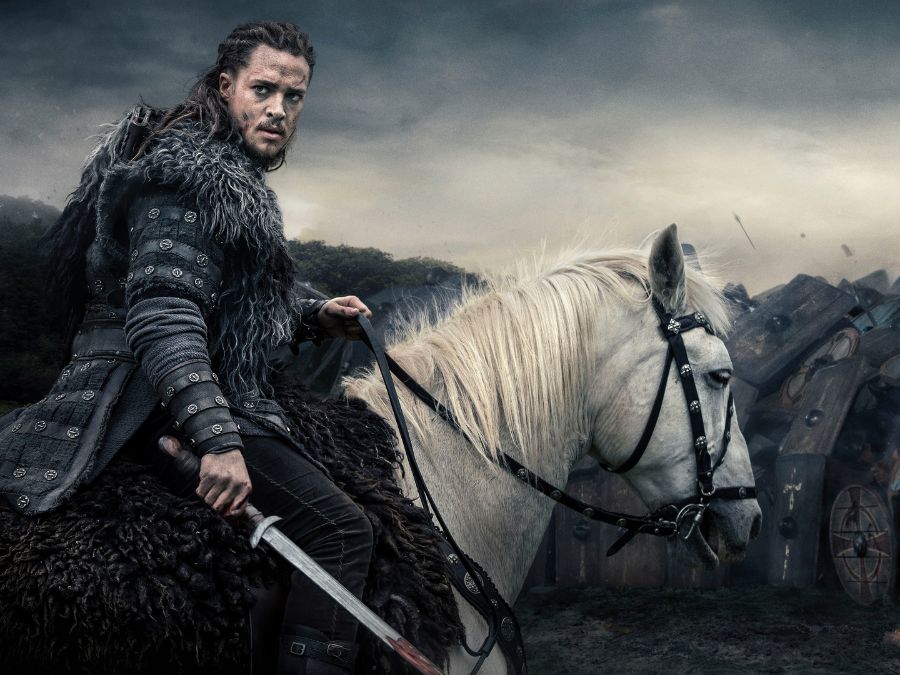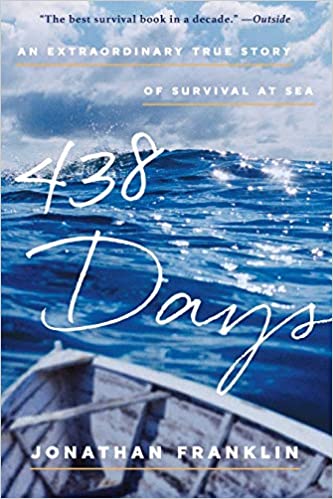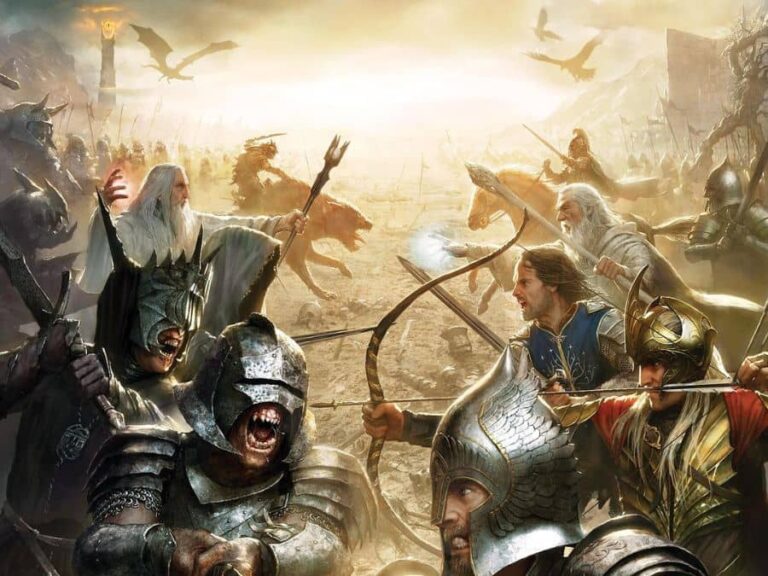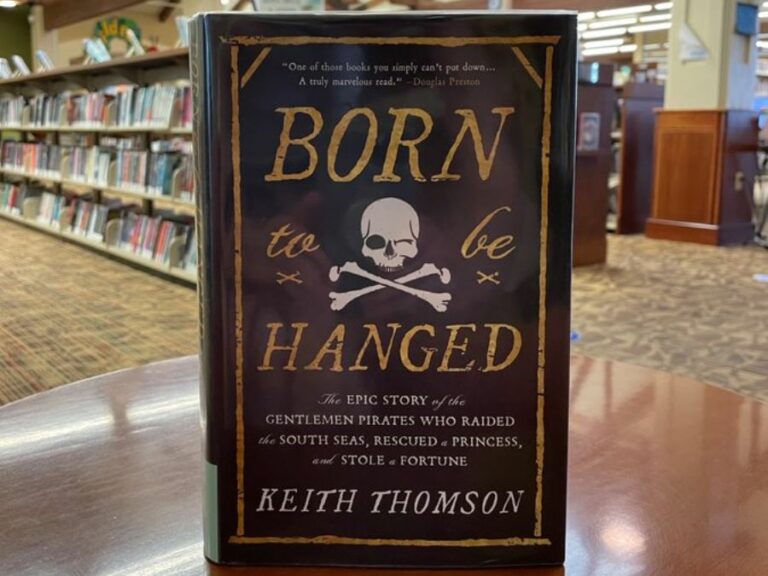What To Read After The Last Kingdom
Longing For More Uhtred Ragnarson? Well, Have You Heard Of Richard Sharpe?
Maybe you have finished all the Last Kingdom Books, better known as the Saxon Stories, or maybe you can’t wait for the next season on Netflix, either way I have the next series of books the You Must Read!
Fans of Cornwell’s historical fiction have plenty of reading material on their hands!
Bernard Cornwell’s epic adventure series, The Last Kingdom, has been made into a mega-popular Netflix series that brings the Viking Age to life in vivid (and sometimes brutal) detail. The show has been a hit and has drawn attention to the source novels themselves, re-energizing them for a run up the bestseller lists.
Fans of Cornwell’s historical fiction have plenty of reading material on their hands, as The Last Kingdom series currently runs to no fewer than twelve full-length novels detailing the life of Uhtred of Northumbria, with a thirteenth due to be released by October. However, some people read much faster than others, and if you’ve finished the entire series and are yearning for more, there’s good news.
Anyone who appreciates Cornwell’s attention to detail, cast of memorable characters, and intense action scenes in The Last Kingdom can pick up the original historical novel series that made Cornwell a worldwide bestseller, the Richard Sharpe novels.
Though Richard Sharpe and Uhtred of Northumbria are separated by about a thousand years, they share many similarities. Both are English, both are warriors, and both, in the words of Cornwell himself, are outcasts from a society that views them with great disdain. Yet where Uhtred dons mail and shield to do battle, Richard Sharpe is a soldier with the British army during the Napoleonic Wars, carrying a Baker Rifle at a time when this particular weapon was quite new, and quite effective.
Like Uhtred, Sharpe is sworn to serve his king, but unlike Uhtred, Sharpe has to start at the bottom of his conflicts and work his way up. That’s because Uhtred was born a lord while Sharpe was born a gutter rat, a fact that his (usually antagonistic) superiors never let him forget. Nevertheless, Sharpe goes from a rank-and-file soldier to an officer of the 95th Rifles, and in India, Portugal, Spain, and France he fights against not just the French but the foes he makes within the army itself.
Like the adventures of Uhtred, Sharpe’s time in Spain is not just spent heaping up French bodies but also running into beautiful women in search of rescue!
Cornwell wrote his first Sharpe book, Sharpe’s Eagle, in 1981. Set in 1809, at a time when the British military sought to defeat Napoleon’s occupying forces in Spain, we are introduced to main characters of the novel series: Richard Sharpe himself, an overlooked and overtasked lieutenant; Patrick Harper, an Irishman who starts as Sharpe’s antagonist before becoming his friend; Riflemen Hagmen and Tongue, renowned for their shot and their intellect respectively; spymaster Michael Hogan, who sees the potential of the ragtag men and their leader; and Arthur Wellsely, the Duke of Wellington, who will one day defeat Napoleon at Waterloo.
Like the adventures of Uhtred, Sharpe’s time in Spain is not just spent heaping up French bodies but also running into beautiful women in search of rescue, and the first woman in Spain he encounters is just the first damsel in distress to cross his path.
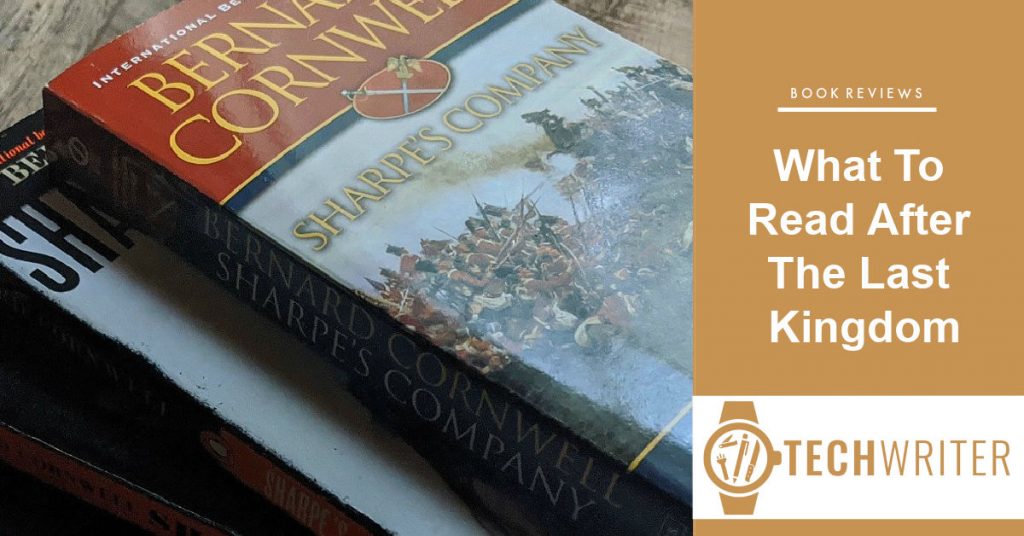
As Cornwell contributed more and more novels to the series, it developed a much deeper and richer storyline than historical soldiering and womanizing. We come to learn that Sharpe earned his promotion from the ranks because he saved the life of the Duke of Wellington on a forgotten battlefield in India.
We learn that Sharpe has enemies on both sides of the battlefield; the infamous Sergeant Hakeswill used to torment Sharpe during his time in the ranks, and the reappearance of his character must surely stand as one of the greatest villains ever penned in historical fiction.
Finally, the reader learns a huge amount of historical detail, from the fact that the Baker Rifle was successful at a distance of 100 yards to the invention of the telegraph system to the treasures looted from Spain during the Napoleonic conquests.
Cornwell had originally limited his story to the events of the Peninsular War as the British pushed through Portugal and Spain into France. As the story progressed, however, he began to write about Sharpe’s backstory, and as a result the protagonist had the mixed fortune of being in attendance for just about every major historical event involving the British military in the early 19th century, including the naval battle of Trafalgar.
Sharpe’s backstory extends as far back as his time in India, fighting on behalf of the British East India Company as they expanded the empire deeper and deeper into Asia.
Many Sharpe fans know the hero from the BBC television series first and the novel series second. In 1993, the BBC launched the Sharpe television program, a fourteen-episode series (expanded in 2003 to sixteen episodes) that brought Sharpe and his 95th Rifles to vivid life.
Sean Bean was cast in the titular role, and so impressed Cornwell that the writer devoted a later story, Sharpe’s Battle, to Bean, while further saying that he changed his image of Sharpe to match Bean’s character and personality. The television series differs from the novel series in many ways, much as Last Kingdom occasionally plays fast and loose with the Uhtred storyline, but became a smash hit and remains popular today: a Facebook group named “Sharpe’s Rifles” has nearly 10,000 participants.
Cornwell came back to write more books in the series partially because of the television show; in turn, the television show created two new miniseries focusing on Sharpe’s adventures in India (chronologically set earlier in the past, although by that point it was a bit of a stretch for Sean Bean to play a younger protagonist).
While it’s been ten years without any sign of the next book by George R.R. Martin, who himself has said that Cornwell is the best writer of battle scenes in the book industry, Cornwell is a prolific writer who managed to produce 22 novels and two short stories in the series.
The Sharpe series in total stretches across over two decades of the hero’s life, from 1799 to 1821, from his first encounters with Napoleon’s auxiliary armies to a face-to-face encounter with the tyrant in his exile on the isle of Saint Helena.
If you’re a fan of Cornwell’s The Last Kingdom, it’s a sure bet that you’ll love the Sharpe series for all the same reasons: great heroes, great villains, great action, and a great glimpse of the past. Here are the five most important novels in the series:
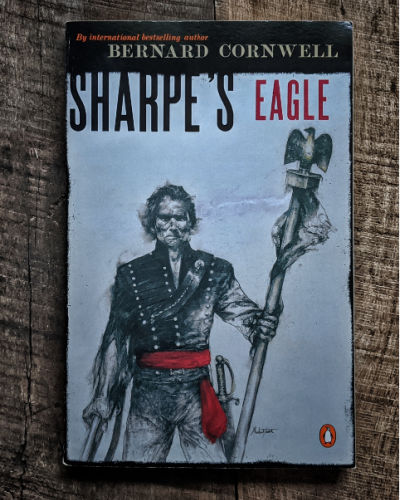
Sharpe’s Eagle (1981)
The introduction of Richard Sharpe in Cornwell’s first published novel leaps off the page instantly. Readers are introduced to the down-on-his-luck hero, as well as the elite aristocrats of the British army’s officer corps who look down their nose at him. Sharpe’s Eagle is the story of the protagonist’s efforts to capture an eagle standard of the French army, a standard touched by Napoleon himself, as a way to return his regiment’s honor after losing the Union Jack in a disastrous encounter. Sharpe’s misrelations with his superiors is a recurring theme in the series, and Sharpe’s Eagle establishes both his bravery and his friction with 19th century class structure.
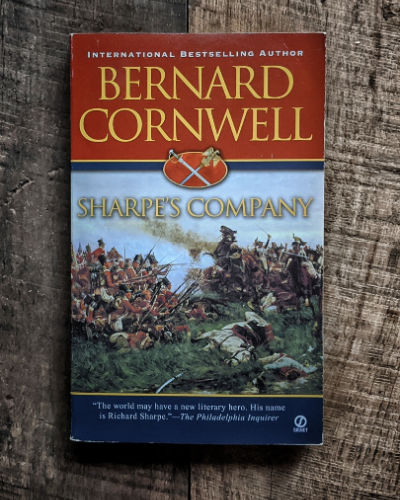
Sharpe’s Company (1982)
Cornwell had originally wanted his first Sharpe novel to be the Siege of Badajoz, a brutal cracking of the city’s fortress by British soldiers that left thousands dead in a single violent evening. Instead, he wrote several novels leading up to this event (in a process he called “warming up”) so that by the time Richard Sharpe and the 95th Rifles arrive at Badajoz, Cornwell is in far greater command of his literary talents.
Sharpe’s Company may be the most poignant novel in the series, and perhaps in Cornwell’s entire bibliography, as it explores themes of duty, bravery, honor, and loyalty; more so, it links together Sharpe with not just the harsh battle conditions but also with the nefarious Sergeant Hakeswill, who has a personal grudge against the hero.
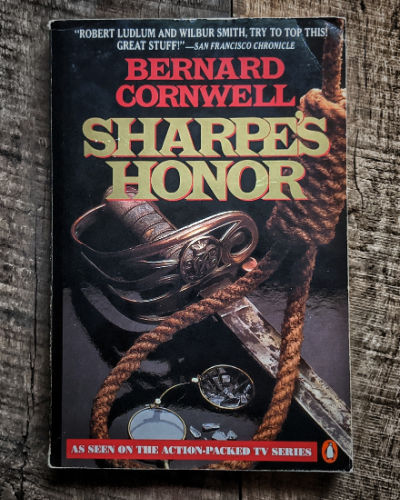
Sharpe’s Honour (1985)
The French spy Pierre Ducos appears in the Sharpe series at the exact moment that it cries out for a new antagonist. Ducos is the exact opposite of Sharpe: shrewd instead of blunt, manipulative instead of brave, and idealistic instead of grounded.
Their introduction led to a major clash, and Ducos spent several novels trying to have Sharpe killed, arrested, or otherwise incapacitated. His grand strategem took place in Sharpe’s Honour, where he attempts to have Sharpe framed for murder, while also solidifying an alliance between France and Spain against Britain. Sharpe’s Honour had fewer cavalry charges and more subtlety than is usual, and succeeds on the back of characters like Ducos and the Spanish partisan el Matarife, whose name translates to The Slaughterer.
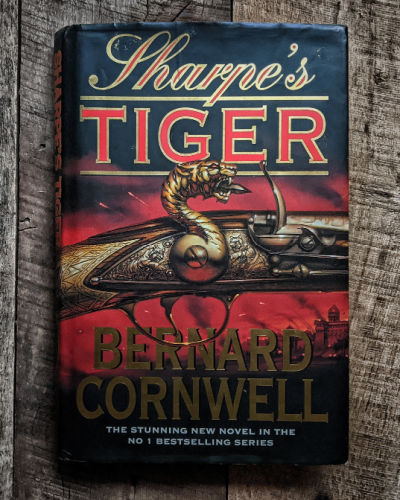
Sharpe’s Tiger (1997)
The first novel to place Richard Sharpe in India, and the first novel of the series in chronological order, Sharpe’s Tiger featured a different Richard Sharpe than readers were used to: rebellious, devil-may-care, and fed up with all manner of soldiering. Some of those personality traits persevered in one way or the other over the rest of the series, but there’s no comparison to be made with Sharpe’s first adventure and all the others.
Captured in the Tippoo Sultan’s fortress of Seringapatam, Sharpe’s Tiger not only refers to the pets that he must fight for survival, but also tells the story of how he stumbled across a fantastic wealth in this exotic faraway land, and how events set him up to one day save Arthur Wellsley’s life and thus become the man he would be throughout the rest of the series.
Audio Books Are The Way To Go!
It’s funny I should list book I read since I never actually read anything anymore…I listen to Audio Books when I run! These type of exciting, adventurous stories really keep me interested slogging through the miles. A great narrator can also insanely add to how amazing the story is. In the case of the Sharpe series, the publisher Blackstone Audio bounced between two main narrators. The first is Fredrick Davidson and the second was Patrick Tull, both are just OK…at least there British. If you want the most unbelievable awesome audio book where the narrator makes the story, check out Peter Noble in the Long War series by Christian Cameron. I think after Outlaw, it’s my favorite audio book series.
Wondering what order to read Bernard Conwell’s Richard Sharp series? Here is the correct order to read all the Sharpe Novels. As we mentioned above, Bernard Cornell didn’t write them chronically.
You can read more about the battles on the Wikipedia page here.
| 01 | Sharpe’s Tiger | Richard Sharpe and the Siege of Seringapatam, 1799 | 1997 | |
| 02 | Sharpe’s Triumph | Richard Sharpe and the Battle of Assaye, September 1803 | 1998 | |
| 03 | Sharpe’s Fortress | Richard Sharpe and the Siege of Gawilghur, December 1803 | 1999 | |
| 04 | Sharpe’s Trafalgar | Richard Sharpe and the Battle of Trafalgar, October 1805 | 2000 | |
| 05 | Sharpe’s Prey | Richard Sharpe and the Siege of Copenhagen, 1807 | 2001 | |
| 06 | Sharpe’s Rifles | Richard Sharpe and the French Invasion of Galicia, January 1809 | 1988 | |
| 07 | Sharpe’s Havoc | Richard Sharpe and the Campaign in Northern Portugal, Spring 1809 | 2003 | |
| 08 | Sharpe’s Eagle | Richard Sharpe and the Talavera Campaign, July 1809 | 1981 | |
| 09 | Sharpe’s Gold | Richard Sharpe and the Destruction of Almeida, August 1810 | 1981 | |
| 10 | Sharpe’s Escape | Richard Sharpe and the Battle of Bussaco, September 1810 | 2004 | |
| 11 | Sharpe’s Fury | Richard Sharpe and the Battle of Barrosa March 1811, Winter 1811 | 2007 | |
| 12 | Sharpe’s Battle | Richard Sharpe and the Battle of Fuentes de Oñoro, May 1811 | 1995 | |
| 13 | Sharpe’s Company | Richard Sharpe and the Siege of Badajoz, January to April 1812 | 1982 | |
| 14 | Sharpe’s Sword | Richard Sharpe and the Salamanca Campaign, June and July 1812 | 1983 | |
| 15 | Sharpe’s Skirmish | Richard Sharpe and the Defence of the Tormes, August 1812 (short story) | 1999 | revised extended edition published 2002 |
| 16 | Sharpe’s Enemy | Richard Sharpe and the Defence of Portugal, Christmas 1812 | 1984 | |
| 17 | Sharpe’s Honour | Richard Sharpe and the Vitoria Campaign, February to June 1813 | 1985 | |
| 18 | Sharpe’s Regiment | Richard Sharpe and the Invasion of France, June to November 1813 | 1986 | |
| 19 | Sharpe’s Christmas | December 1813, Franco-Spanish border (short story) | 1994 | revised edition published 2003 |
| 20 | Sharpe’s Siege | Richard Sharpe and the Winter Campaign, 1814 | 1987 | |
| 21 | Sharpe’s Revenge | Richard Sharpe and the Peace of 1814 | 1989 | |
| 22 | Sharpe’s Waterloo | Richard Sharpe and the Waterloo Campaign, 15 June to 18 June 1815 | 1990 | |
| 23 | Sharpe’s Ransom | December 1816, Normandy (short story) | 1994 | revised edition published 2003 |
| 24 | Sharpe’s Devil | Richard Sharpe, Thomas Cochrane and the Emperor, 1820–21 | 1992 |

Blair Witkowski is an avid watch nut, loves pocket knives and flashlights, and when he is not trying to be a good dad to his nine kids, you will find him running or posting pics on Instagram. Besides writing articles for Tech Writer EDC he is also the founder of Lowcountry Style & Living. In addition to writing, he is focused on improving his client’s websites for his other passion, Search Engine Optimization. His wife Jennifer and he live in coastal South Carolina.

